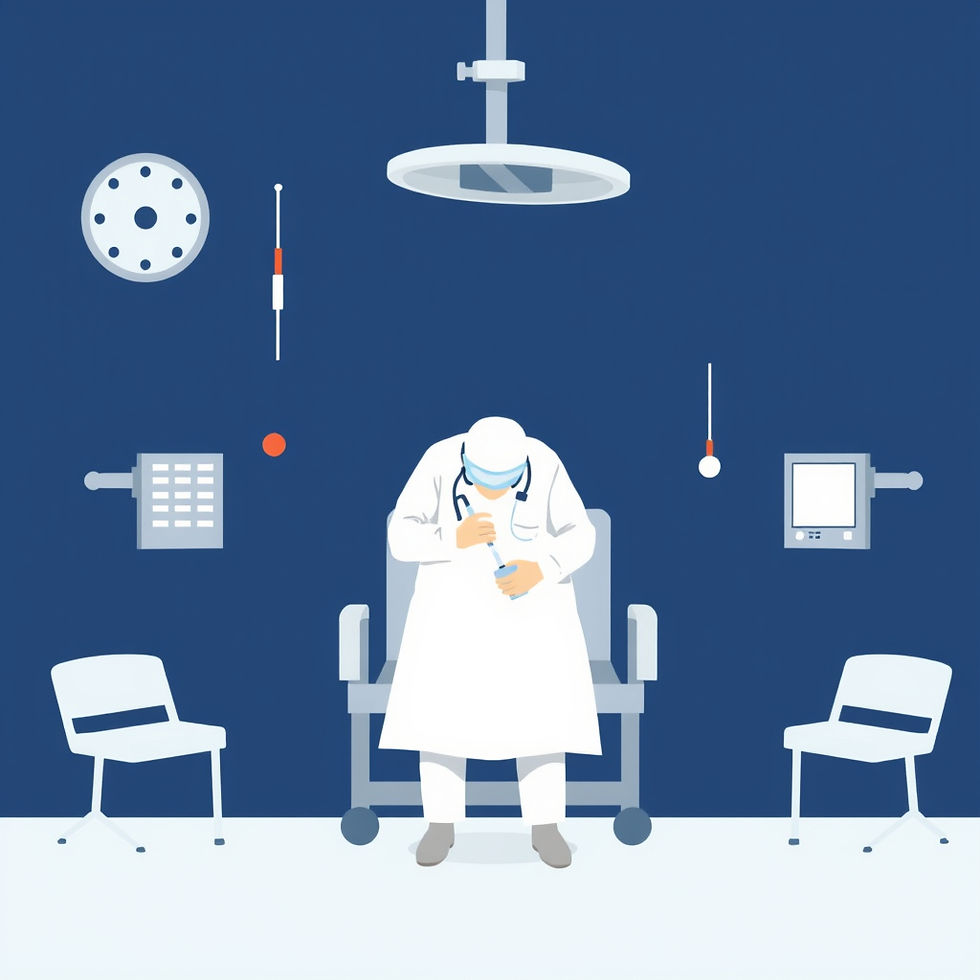Patient Rights After Mental Health Abuse in the UK
- clairelouise7485
- Oct 23, 2025
- 4 min read

Introduction
Every person receiving mental-health care in the UK is protected by law.When that care becomes neglectful, coercive, or abusive, you still retain powerful patient rights — even if you were detained under the Mental Health Act.
This article explains what those rights are, how to use them, and what steps you can take to hold services accountable for mental-health abuse.
Your Core Legal Protections
The UK has several pieces of legislation designed to protect mental-health patients:
Mental Health Act 1983 (amended 2007) – defines when and how people can be detained or treated without consent.
Human Rights Act 1998 – ensures freedom from degrading treatment and the right to dignity and family life.
Mental Capacity Act 2005 – governs decisions for people who temporarily or permanently lack capacity.
Data Protection Act 2018 (GDPR) – guarantees access to and accuracy of your medical information.
Together, these laws affirm that patients are not powerless — even when detained or under compulsory treatment.
Key Rights After Experiencing Mental-Health Abuse
🧾 1️⃣ The Right to Access Your Records
You are legally entitled to see everything written about you.Request a Subject Access Request (SAR) from your NHS Trust or GP practice.Check for accuracy and request corrections if anything is false, incomplete, or misleading.Accurate records are essential if you later decide to make a formal complaint or legal claim.
🗣️ 2️⃣ The Right to Complain and Be Heard
Every NHS Trust must have a Patient Advice and Liaison Service (PALS) and a Complaints Department.You can complain if:
You were mistreated, ignored, or verbally abused.
Your treatment plan was changed without consent.
Your safety concerns were dismissed.
Ask for a written acknowledgment and a full investigation report.If the internal process fails, you can escalate to the Parliamentary and Health Service Ombudsman (PHSO) or the Care Quality Commission (CQC).
⚖️ 3️⃣ The Right to Legal Representation
Even detained patients have access to independent legal advice.You can contact:
A mental-health solicitor (for claims or tribunal representation).
The Law Society or Legal Aid Agency to find a specialist.
Advocacy charities that provide free legal referrals.
Legal representation can help you challenge unlawful detention, unsafe practices, or neglect.
🧍♀️ 4️⃣ The Right to Safety and Respect
You have the right to be treated:
With dignity and compassion
Without fear of restraint, intimidation, or retaliation
In an environment free from sexual, physical, or emotional abuse
If you experience harm, it must be reported immediately to the CQC, the police (if criminal), and independent advocacy bodies.
🧠 5️⃣ The Right to Informed Consent
Except in limited emergency situations, you must give informed consent to treatment.You should receive clear information about:
What the treatment involves
Possible risks and side-effects
Alternatives available
Your right to refuse
If consent was not obtained, or you were coerced, that may constitute negligence or abuse.
💊 6️⃣ The Right to Safe Medication and Withdrawal
Psychiatrists must follow NICE guidelines when prescribing or discontinuing medication.You are entitled to:
Be told why a drug is prescribed
Be informed of potential side-effects
Receive a safe tapering plan if medication is withdrawn
Abrupt removal of antidepressants or sedatives without monitoring can be clinically unsafe and a breach of duty of care.
🔒 7️⃣ The Right to Privacy
All personal information — medical, psychological, or legal — must remain confidential unless disclosure is required by law to prevent serious harm.Breaches of privacy can be reported to the Information Commissioner’s Office (ICO).
How to Exercise Your Rights
Step 1: Gather Evidence
Keep records of every incident — dates, staff names, witnesses, letters, and any physical evidence such as photographs or injury reports.
Step 2: Seek Advocacy Support
Contact independent mental-health advocacy organisations such as:
Mind – mind.org.uk
Rethink Mental Illness – rethink.org
Healthwatch England – healthwatch.co.uk
They can guide you through complaint procedures and provide representation.
Step 3: Report to Authorities
Depending on the issue:
CQC – for unsafe services or abuse
GMC – for misconduct by doctors
NMC – for misconduct by nurses
ICO – for record falsification or data breaches
Police (101) – if you believe a crime was committed, such as assault or fraud
Step 4: Consider Legal Action
If harm was significant, a medical negligence solicitor can assess whether you have grounds for a civil claim.You may be eligible for Legal Aid in serious psychiatric cases.
Emotional Recovery and Support
After abuse or negligence, emotional healing is as important as justice.You can access:
NHS trauma counselling or independent therapy
Survivor networks and peer-support groups
Confidential helplines such as Samaritans (116 123) or Mind Infoline (0300 123 3393)
Recovering your sense of safety and dignity is a vital part of reclaiming your rights.
Conclusion
Mental-health patients in the UK are protected by clear legal and ethical standards.If you’ve suffered abuse, negligence, or coercion, you are not powerless — the law is on your side.
By asserting your rights, gathering evidence, and seeking professional support, you help ensure accountability and contribute to safer, more compassionate mental-health care for everyone.


Comments